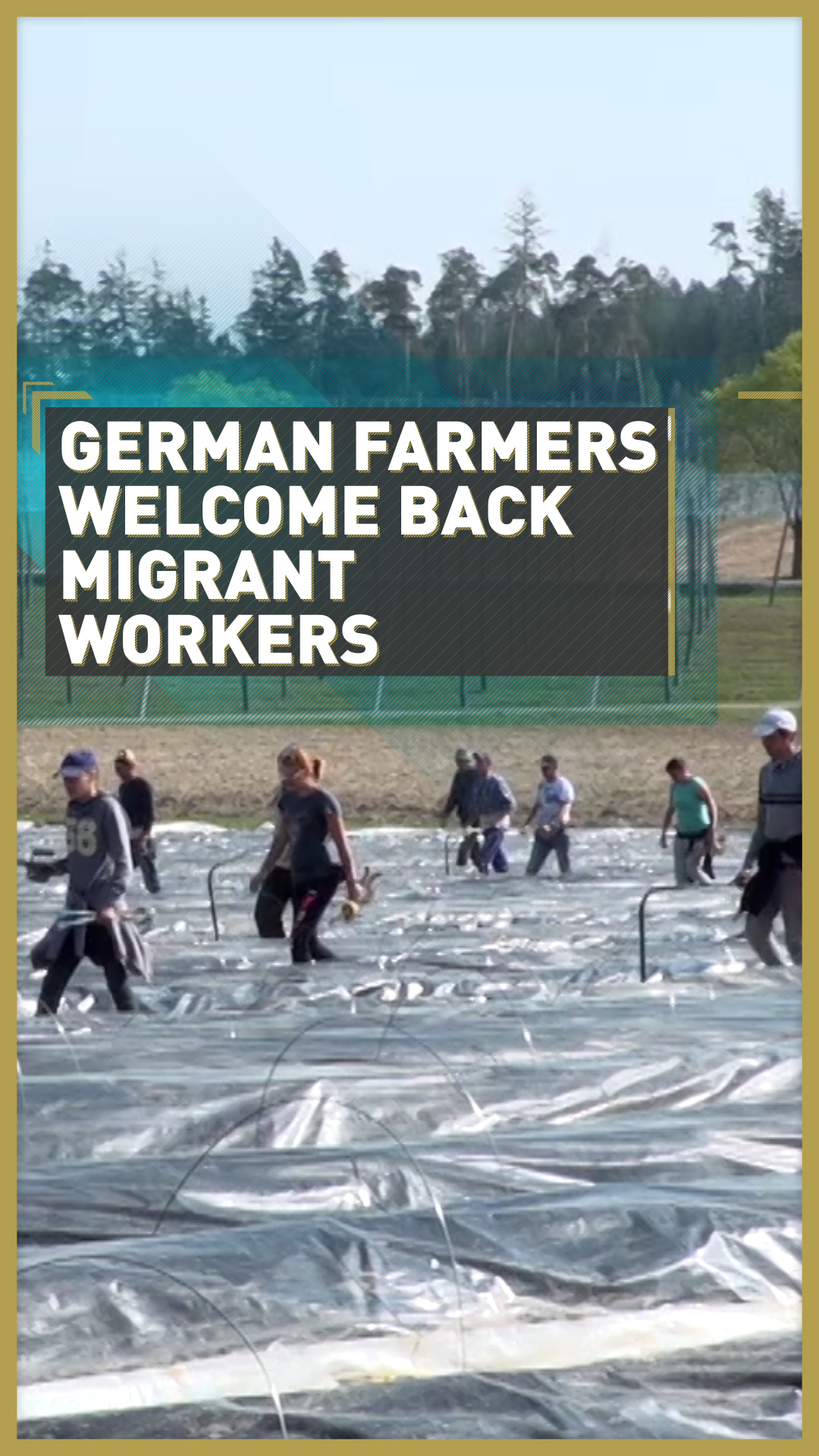03:06

In Germany, asparagus is a particularly prized national vegetable, marking the start of the spring harvest and adorning plates across the country next to buttered potatoes and ham, topped with hollandaise sauce.
In the state of Bavaria, white asparagus is particularly favoured, with 24/7 vending machines offering the product for those round-the-clock cravings.
Yet many asparagus farmers are having trouble getting them out of the ground.
Farmer Stefan Böhmer and his family have been farming asparagus and strawberries in the Bavarian district of Kelheim for more than four decades, but this could prove one of their most challenging seasons yet.
Farmers across Germany have been struggling to harvest their spring crops since border closures to contain the spread of COVID-19 effectively shut out much-needed help.
"It's difficult," says Böhmer. "We live 99 percent from our agriculture, from the specialty crops. There are farm managers who are desperate, who are now saying they are at the brink of bankruptcy."
Annually, German farms depend on roughly 300,000 farm workers, mostly from eastern European countries, to help harvest and sow the fields. Without that help, a year's worth of crops could rot away.
For this reason, Berlin has decided to accept 40,000 seasonal workers in April and another 40,000 in May, but Böhmer says strict COVID-19 cautionary measures apply.

Asparagus is a prized vegetable in Germany. /Natalie Carney/CGTN Europe
Asparagus is a prized vegetable in Germany. /Natalie Carney/CGTN Europe

Workers at the farm in Kelheim. /Natalie Carney/CGTN Europe
Workers at the farm in Kelheim. /Natalie Carney/CGTN Europe

Asparagus is one of the items available in the vending machines. /Natalie Carney/CGTN Europe
Asparagus is one of the items available in the vending machines. /Natalie Carney/CGTN Europe

There are fears about strawberry and other crops. /Natalie Carney/CGTN Europe
There are fears about strawberry and other crops. /Natalie Carney/CGTN Europe

Measures are taken to maintain social distancing. /Natalie Carney/CGTN Europe
Measures are taken to maintain social distancing. /Natalie Carney/CGTN Europe
"We may now have a regulation to fly in harvest helpers, but it is not easy. The hygiene rules are very strict. There is a quota behind it. They want to make sure that not too many come in at once, that you have everything under control."
Martin Neumeyer, the chief administrator for the district of Kelheim and also the local head of the asparagus association, says the monthly quota is not enough.
"In Germany, we need 300,000 seasonal workers. At the moment there are maybe 80,000 here so that means there are 220,000 missing. This is a huge challenge for all farmers – asparagus, hops, strawberries, cucumber, grapes… because the plant grows and we need someone to do it."
Yet with nearly 130,000 confirmed cases of COVID-19 in the country as of Monday evening, German authorities want to limit any further risks of infections by letting too many people in at once.
Germany's high number also concerns the workers themselves: many are coming from places with a much lower case rate. Despite Berlin's easing of border restrictions for seasonal workers, fewer than 10,000 have registered for April and only 4,300 so far for May.
'It's a lot of hard work'
The need for additional farm labour is affecting farms across the European Union, from French strawberries to Italian tomatoes.
With many non-essential stores and services temporarily shut, some governments have called on their own citizens to pitch in at local farms, recruiting restaurant servers, receptionists, teachers and hairdressers.
Yet it is not a job for the faint of heart, says Neumeyer, and strict hygiene and distancing measures and regulations still apply.
"It is important that those who come to us can deal with the vegetables, that they cut them properly not to damage the plant. You have to be taught. And of course, it's a lot of hard work because it causes back problems and is not suitable for everyone. Some may see it more as fun, but we need them daily, also on Sunday, on public holidays, and that's why you need a certain amount of perseverance. It's not that easy."
Additionally, with many restaurants and eateries closed, even if crops are harvested, many farmers are scrambling to find new clients to avoid watching their harvest go unsold.
Yet despite these hard times, Neumeyer says many in Kelheim are looking to an age-old adage.
"If the asparagus season goes well, the other harvests usually go well too because the asparagus is the first vegetable, the so-called spring vegetable," he explains. "If it works, then the strawberries or the hops or the cucumbers or the grapes or whatever will too."
Sign up here to get the COVID-19 Europe bulletin sent directly to your inbox